Olympic Games.
According to historical records, the first ancient Olympic Games can be traced back to 776 BC. They were dedicated to the Olympian gods and were staged on the ancient plains of Olympia. They continued for nearly 12 centuries, until Emperor Theodosius decreed in 393 A.D. that all such "pagan cults" be banned.
Olympia
Olympia, the site of the ancient Olympic Games, is in the western part of the Peloponnese which, according to Greek mythology, is the island of "Pelops", the founder of the Olympic Games. Imposing temples, votive buildings, elaborate shrines and ancient sporting facilities were combined in a site of unique natural and mystical beauty. Olympia functioned as a meeting place for worship and other religious and political practices as early as the 10th century B.C. The central part of Olympia was dominated by the majestic temple of Zeus, with the temple of Hera parallel to it.
The Games and religion
The Olympic Games were closely linked to the religious festivals of the cult of Zeus, but were not an integral part of a rite. Indeed, they had a secular character and aimed to show the physical qualities and evolution of the performances accomplished by young people, as well as encouraging good relations between the cities of Greece. According to specialists, the Olympic Games owed their purity and importance to religion.
Victory Ceremonies
The Olympic victor received his first awards immediately after the competition. Following the announcement of the winner"s name by the herald, a Hellanodikis (Greek judge) would place a palm branch in his hands, while the spectators cheered and threw flowers to him. Red ribbons were tied on his head and hands as a mark of victory.
The official award ceremony would take place on the last day of the Games, at the elevated vestibule of the temple of Zeus. In a loud voice, the herald would announce the name of the Olympic winner, his father"s name, and his homeland. Then, the Hellanodikis placed the sacred olive tree wreath, or kotinos, on the winner"s head.
Викторина по теме "Олимпийские игры" .
Olympic Games Quiz 1. How often are the Olympic Games held? Every year Every two years Every four years 2. How many rings are there in the Olympic Games symbol? four five 3. What do they represent? Countries of the world Continents of the world Cities of the world 4. When will the next Summer Olympics be held? 2012 2014 2016 5. Where will the next Winter Olympics be held? London Sochi Rio de Janeiro 6. Where were the first modern Olympics played? 1896 1900 1924 7. Who was the ‘inventor’ of the modern Olympic Games? Pierre de Coubertin Juan Antonio Samaranch Jacques Rogge 8. What do the sportsmen who come first, second and third win in the Olympics? Certificates Equipment Medals 9. Where are The International Olympic Committee based? France Switzerland Spain 10. How many people play in a Water Polo team? Five Seven. |
Summer olympic sports | Летние олимпийские виды спорта |
Archery | Стрельба из лука |
Artistic gymnastics | Художественная гимнастика |
Athletics | Лёгкая атлетика |
Badminton | Бадминтон |
Basketball | Баскетбол |
BMX (велоспорт) |
|
Boxing | Бокс |
Canoe/kayak (sprint) | Гребля на байдарках и каноэ (спринт) |
Diving | Прыжки в воду |
Dressage (Equestrian) | Выездка (конный спорт) |
Eventing (Equestrian) | Троеборье (конный спорт) |
Fencing | Фехтование |
Field hockey | Хоккей на траве |
Football | Футбол |
Freestyle (Wrestling) | Вольная борьба |
Greco-Roman (Wrestling) | Греко-римская борьба |
Judo | Дзюдо |
Jumping (Equestrian) | Конкур (конный спорт) |
Handball | Гандбол |
Modern pentathlon | Современное пятиборье |
Mountain biking | Маунтинбайк (велоспорт) |
Rhythmic gymnastics | Спортивная гимнастика |
Road cycling | Шоссейные гонки (велоспорт) |
Swimming | Плавание |
Synchronized swimming | Синхронное плавание |
Track cycling | Трековые гонки (велоспорт) |
Trampoline | Прыжки на батуте |
Volleyball (beach) | Пляжный волейбол |
Volleyball (indoor) | Волейбол |
Water polo | Водное поло |
Rowing | Академическая гребля |
Sailing | Парусный спорт |
Shooting | Стрельба |
Table tennis | Настольный теннис |
Taekwondo | Тхэквондо |
Tennis | Теннис |
Triathlon | Триатлон |
Weightlifting | Тяжёлая атлетика |
Winter olympic sports | Зимние олимпийские виды спорта |
Alpine skiing | Горнолыжный спорт |
Biathlon | Биатлон |
Bobsleigh | Бобслей |
Cross country skiing | Лыжные гонки |
Curling | Кёрлинг |
Figure skating | Фигурное катание |
Freestyle skiing | Фристайл (Лыжные виды спорта) |
Ice hockey | Хоккей |
Luge | Санный спорт |
Nordic combined | Лыжное двоеборье |
Short track speed skating | Шорт-трек (Коньковые виды спорта) |
Skeleton | Скелетон |
Ski jumping | Прыжки с трамплина |
Snowboarding | Сноубординг |
Speed skating | Конькобежный спорт |
Olympic vocabulary | Олимпийская лексика |
Amateur | Любитель |
Anthem | Гимн |
Banned | Запрещенный |
Broadcaster | Ведущий/диктор/комментатор |
Compete | Соревноваться |
Contestant | Участник соревнований |
Controversy | Разногласие |
Doping | Допинг |
Facilities | (Cпортивные) сооружения |
Fanfare | Фанфары |
Host | Страна-хозяйка Олимпиады |
Humanity | Человечество |
Medal | Медаль |
Motto | Девиз |
Nationality | Гражданство |
Oath | Клятва |
Participant | Участник |
Partisanship | Несправедливое судейство (обычно по политическим причинам) |
Postpone | Перенести (начало соревнований) |
Preliminaries | Предварительные соревнования |
Purity | Чистота |
Qualify | Пройти квалификацию на соответствие минимальным требованиям |
Representative | Представитель |
Security | Охранник |
Spectator | Зритель |
Sponsor | Спонсор |
Spokesman | Человек (часто - спортсмен), представляющий компанию на рынке или в СМИ |
Sportsmanship | Спортивный дух честности и справедливости |
Stamina | Выносливость |
Standings | Положение в турнирной таблице |
Substitute | Запасной игрок, выходящий на замену |
Swifter | Быстрее |
Symbol | Символ |
Torch | Факел |
Venue | Место проведения игр (спортивная площадка и т. д.) |
Victory | Победа |
The Olympic Games are one of the most spectacular reminders of the debt we owe to the Greeks.
The original Olympic Games were held every four years in honour of Zeus, the supreme god of Greek religion. The first record of the games dates from 776 B.C., but it is certain that they existed prior to that. They were held continuously for over 1.000 years until they were abolished in the reign of King Theodosius about 392 A.D. The Olympic festival was a great unifying bond between the Independent city-states of Greece.
The important sports in the original Olympic Games were running, jumping, wrestling, throwing the discus and throwing the javelin. Only men competed and they wore no clothes in order to have greater freedom of movement. Each competitor had to take the Olympic Oath - a promise to behave in a sportsman-like fashion.
The modern Olympic era began in 1894 when Frenchman Baron Pierre de Coubertin decided to revive the ancient Greek tradition of celebrating health, youth and peace with a sports festival. Baron de Coubertin created the International Olympic Committee (IOC) and the first modem Olympiad took place in Athens in 1896. Since then the Olympic Games have been held every four years with only two exceptions because of the two world wars.
Even though the modern Olympic Games embrace the whole world, the connection with Greece is still very strong. A lighted torch is brought all the way from Greece, carried by a relay of runners, in order to light the Olympic Flame which bums all through the Games. As in ancient Greek times, the competitors still take the Olympic Oath. The long-distance race is still called the Marathon. Marathon was a village about 26 miles from Athens. In the year 490 BC the Greeks defeated a powerful Persian army at that spot. After the fierce day"s fighting a soldier volunteered to bring news of the victory to the anxious citizens of Athens. He ran all the way and after gasping out the message. "Rejoice, we conquer!" he collapsed and died.
One important rule of the Olympic Games is that the competitors must be amateurs. This rule has been under a lot of pressure in recent years because modem sport is so professional and competitive. Athletes train for years to take part in the Olympics and some countries spend much more than others on equipment and facilities. But despite these pressures, the amateur rule remains.
In modern times the Olympic movement has become an enormous and expensive organisation, It"s controlled by the International Olympic Committee, which consists of members from all the participating countries. The IOC is based in Lausanne, Switzerland. It chooses the locations of both summer and winter games (both take place once very four years, with winter games half a year before summer Olympiads). It also controls the rules of the competitions and selects new Olympic sports. The famous flag of the IOC shows five rings of different colours linked together. The rings represent the five continents.
Olympic Games
The world"s greatest international sports games are known as the Olympic Games.
The Olympic idea means friendship, fraternity and cooperation among the people of the world. The Olympic Movement proves that real peace can be achieved through sport.
The Olympic emblem is five interlinked rings: blue, yellow, black, green and red. Any national flag contains at least one of these colours.
The original Olympic Games began in ancient Greece in 776 B.C. These games were part of a festival held every fourth year in honour of God Zeus at the place called Olympia. It was a great athletic festival, including competitions in wrestling, foot racing and chariot racing, rowing and others.
The games were for men only. Greek women were forbidden not only to participate but also to watch the Olympics.
The first modern Olympic Games were held in Athens in 1896. Then they were resumed in London after the Second World War. Since then the Olympics are held every fourth year in different countries.
The ancient
Greeks had no winter sports. Only in 1924 the first Winter
Olympic Games were held in France. Now they are being held
regularly.
Олимпийские игры
Самые известные в мире спортивные игры - Олимпийские.
Идея игр - дружба, братство и согласие народов мира. Олимпийское движение доказывает, что мир может быть достигнут благодаря спорту.
Олимпийская эмблема - пять переплетенных колец: голубое, желтое, черное, зеленое и красное. Флаг любой страны имеет хотя бы один из этих цветов.
В первый раз Олимпийские игры были проведены в Древней Греции в 776 году до н. э. Они были частью фестиваля, проводящегося каждый четвертый год в честь бога Зевса в Олимпии. Это был грандиозный спортивный праздник, включавший в себя соревнования по борьбе, бегу, езде на колесницах, гребле и др.
К играм допускались только мужчины, женщинам запрещалось не только участвовать, но и наблюдать.
Первые современные Олимпийские игры были проведены в 1896 в Афинах. Потом они были возобновлены в Лондоне после Второй мировой войны. С того времени Олимпийские игры проводятся каждый четвертый год в различных странах.
У древних греков не было зимних
видов спорта. Только в 1924 году во Франции состоялись первые
Зимние Олимпийские игры. Сейчас они проводятся регулярно.
Questions:
1. What are the
world"s greatest sports games?
2. What does the Olympic idea mean?
3. What is the Olympic emblem?
4. Why have these colours been chosen?
5. When and where did the original Olympic Games begin?
6. Did women participate in the games?
7. When were the first modern Olympic Games held? Where?
8. Are the Olympics held in the same place?
9. When did the Winter Olympic Games start being held? Where?
Vocabulary:
peace - мир
fraternity - братство
contain(s) - содержать
ancient - древний
B.C. (before Christ) - до нашей эры
Zeus - Зевс
to participate - участвовать
to resume - возобновлять
The Olympic Games (1)
The Olympic Games have a very long history. They began in 777 ВС in Greece and took place every four years for nearly twelve centuries at Olympia. They included many different kinds of sports: running, boxing, wrestling, etc. All the cities in Greece sent their best athletes to Olympia to compete in the Games.
For the period of the Games all the wars stopped. So the Olympic Games became the symbol of peace and friendship. In 394 AD the Games were abolished and were not renewed until many centuries later.
In 1894 French Baron Pierre de Coubertin, addressed all the sports governing bodies and pointed out the significance of sport and its educational value.
Two years later the first modern Olympic Games took place. Of course, the competitions were held in Greece to symbolize the continuation of the centuries-old tradition.
In 1896 the International Olympic Committee was set up. It is the central policy-making body of the Olympic movement. It is formed by the representatives of all countries, which take part in the Olympic Games.
Summer and Winter
Games are held separately.
Олимпийские игры (1)
Олимпийские игры имеют очень длинную историю. Они начались в 777 г. до нашей эры в Греции и проводились каждые четыре года в течение приблизительно двенадцати столетий в Олимпии. Они включали в себя разные виды спорта: бег, бокс, борьбу и т. п. Все города Греции посылали своих лучших спортсменов в Олимпию для состязаний в играх.
В период игр все войны прекращались. Таким образом, Олимпийские игры стали символом мира и дружбы. В 394 г. нашей эры игры были отменены и не возобновлялись в течение многих веков.
В 1894 г. француз, барон Пьер де Кубертен, обратился ко всем руководящим спортивным органам и указал на важность спорта и его воспитательное значение.
Два года спустя были проведены первые современные Олимпийские игры. Конечно, соревнования проводились в Греции, чтобы символизировать продолжение вековой традиции.
В 1896 г. был создан Международный олимпийский комитет. Это главный орган, определяющий политику Олимпийского движения. В него входят представители всех стран, принимающих участие в Олимпийских играх.
Летние и зимние игры проводятся отдельно.
Questions:
1. When and where
did the Olympic Games begin?
2. Why did the Olympic Games become the symbol of peace and
friendship ?
3. When did the Games in Greece stop?
4. Who renewed the Olympic movement?
5. When and where did the first modern Games take place?
6. When was the International Olympic Committee set up? What is
its function?
7. Are Summer and Winter Games held separately?
8. Where were the latest Olympic Games held?
Vocabulary:
ВС = Before Christ - до Рождества
Христова, т. е. до н. э.
wrestling - борьба
to compete - соревноваться
AD = Anno Domini - в год Господень, т. е. н. э.
to abolish - отменять, упразднять
to hold - проводить
to set up - организовывать, создавать
separately - отдельно
The Olympic Games are an international sports competition which are held every four years in a different city. Thousands of athletes from all over the world compete against each other in individual and team sports. Over 1 billion people watch the games on TV.
The first Olympic Games were held in Greece in 776 B.C. They were called the ancient games and lasted until the 4th century A.D. The modern games began in 1896, when the Frenchman Pierre de Coubertin revived the games to bring peace and friendship to the young people all over the world.
Today, there are summer and winter games. Up to 1994 both games were held in the same year, but now they are staged two years apart from each other.
Ceremonies and symbols
The Olympic Games begin with the opening ceremony. Athletes from all the participating nations march into the stadium. Greece comes in first, because it was the first nation to hold the Olympics and the host nation comes in last.
The Olympic flag is raised and a chosen athlete lights the Olympic flame. It is a symbol of spirit, knowledge and life. The fire comes from Olympia, a small town in Greece and many runners transport the flame in a torch relay to the site of the games. It burns from the opening ceremony until the end of the games.
The Olympic rings were created in 1913 and represent the five continents (Africa, Asia, Europe, Australia and the Americas).
All athletes must take the Olympic oath. One of them has to promise that all athletes will give their best and compete in a fair way.
After each event, medals are given to the first three athletes. They receive gold, silver and bronze medals. Their flags are raised and the national anthem of the winner"s country is played.
The International Olympic Committee
The IOC is the organisation that governs the games. It decides which sports and events are held at the games. The IOC also selects the host city for the summer and winter games, at least seven years before they take place. Cities that want the games must show that
They have enough stadiums for all events
they have enough room for all the athletes
they can provide safety for the athletes
they can transport athletes and spectators from one event to another
Host cities must build an Olympic village where all athletes live during the games.
How can athletes take part?
Normally, each country decides for itself which sportsmen and –women are allowed to take part. Athletes must qualify for the games by winning or doing well in competitions before the Olympic Games start.
Athletes, who are sent to the games by their country must be a citizen of that country. For years, only amateurs were able to participate in the games, but today, most athletes are professionals, who earn their money through sport.
Most governments give their team money so that it can take part in the games.
The ancient Games
The ancient Olympic Games were celebrated at Olympia, Greece every four years. They were held in honour of the god Zeus. In the early games, only Greek men were allowed to participate. The games consisted of sports like footraces, wrestling, boxing, the pentathlon and horse racing. The last event of the games was usually a chariot race.
When the Romans conquered Greece in 140 B.C. the games started to lose their religious meaning and in 393 the Roman emperor banned the event.
The Summer Games
The Summer Games are held during the summer season of the host country. They last for 16 days. Today, there are more than 270 events during the games. Over 15,000 athletes from 190 nations take part.
The next Summer Games will be held in London (2012).
The Winter Games
The first separate Winter Games were held in Chamonix, France in 1924. They usually take place in February. Today, the Winter Olympics include over 60 events. Athletes from more than 60 countries participate.
Politics and the Olympic Games
In the past, the Olympic Games have been disturbed by political issues. In 1936 the IOC chose Berlin as the site for the 1936 Summer Games. A few years later, Adolf Hitler"s Nazi Party rose to power and Hitler used the games to show Germany"s power.
In 1968 two Black American runners protested against their government and raised their fists when the American national anthem was played.
In 1980 the USA-and many other countries-didn"t send athletes to the games in Moscow because the Soviet Union had invaded Afghanistan a year before. In return, the Russians and other Communist countries refused to take part in the 1984 games in Los Angeles.
The worst day in Olympic history came on September 5th, 1972 during the Munich games. Eight Palestinian terrorists broke into the Olympic village and killed two Israeli athletes. 9 others were taken hostage. They wanted the Israeli government to set free over 400 Arab prisoners in Israel. During a battle with German policemen all hostages and the terrorists were killed.
Olympia today
The Olympic Games have become very successful over the past years. More and more people are able to watch them on TV and television stations are spending more money for the rights to broadcast the games. The IOC earns more money than ever before. With this money they help athletes in poorer countries.
Drugs have become a big problem. Some athletes take drugs before and during the games in order to help their muscles grow. When they are caught they are disqualified and their medals are taken away from them.
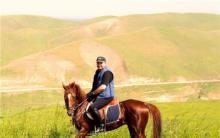
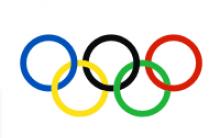
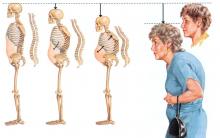

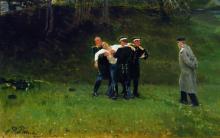
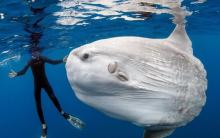




Безопасность на занятиях по лыжной подготовке - реферат
Как развлекались в средние века
Уроки баскетбола для начинающих от сергея белова
Конспекты занятий в детском саду
Максимова екатерина художественная гимнастика